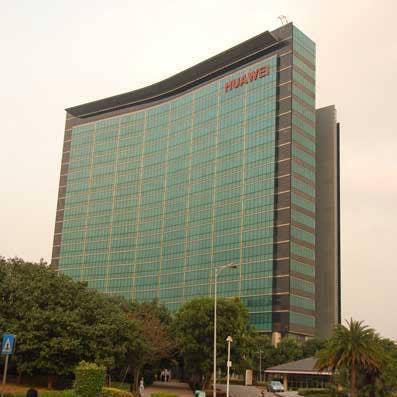Huawei Ban: Google, Intel Reportedly Suspend Business With Chinese Telecom Giant
'I would be shocked if it doesn't have a major impact,' one solution provider says of Google's decision to suspend business with Huawei, which reportedly coincides with similar actions by Intel, Qualcomm and other tech companies after the Chinese telecom giant was added to a U.S. trade blacklist.

Google, Intel and Qualcomm are among the tech companies that have reportedly suspended business with Huawei after the Chinese telecom giant was added to a U.S. trade blacklist last week.
Reuters reported on Sunday that Google has revoked access to its hardware, software and technical services from Huawei, which includes the internet giant's latest Android updates, as well as popular services like the Google Play Store and Gmail. The suspension does not apply to open-source software.
[Related: Struggling Huawei Pleads Not Guilty To Trade Secret Theft, Wire Fraud In U.S.]
In a statement to CRN, a Google spokesperson said the company is complying with the decision issued by the U.S. Commerce Department last week that bans Huawei from purchasing technology from U.S. companies without government approval.
"We are complying with the order and reviewing the implications," the Google spokesperson said. "For users of our services, Google Play and the security protections from Google Play Protect will continue to function on existing Huawei devices."
This means that the ban will likely hurt future versions of Huawei smartphones running on Android, according to Dominic Daninger, vice president of engineering at Nor-Tech, a Burnsville, Minn.-based system builder that partners with Intel, Broadcom and other U.S. tech companies.
"I would be shocked if it doesn't have a major impact," he said.
A Huawei spokesperson told CRN that the company "will continue to provide security updates and after-sales services to all existing Huawei and Honor smartphone and tablet products, covering those that have been sold and that are still in stock globally."
Noting Huawei's "substantial contributions to the development and growth of Android around the world," the spokesperson added that the company will "continue to build a safe and sustainable software ecosystem, in order to provide the best experience for all users globally."
Reuter's report on Google was followed with one by Bloomberg, also on Sunday, that Intel, Qualcomm, Xilinx and other chipmakers have stopped shipments to Huawei. The companies reportedly told their employees that the suspension will last until further notice.
"We are aware of the Denial Order issued by the U.S. Department of Commerce with respect to Huawei, and we are cooperating," a Xilinx spokesperson told CRN, adding that the company has no further comment.
An Intel spokesperson declined to comment when reached by CRN. Qualcomm reportedly declined to provide a comment to Bloomberg.
Huawei is not only an Intel customer but a partner as well. The Chinese company, which is the largest telecom provider in the world, has been among the early supporters of Intel Optane DC Persistent Memory for data centers, for instance.
"That is certainly going to have some serious impact I think," Daninger, the executive at Intel partner Nor-Tech, said. "In some cases, it could be darn hard to find a substitute [for Intel's components]."
Bloomberg reported that Huawei has built a stockpile of chips and other components that will allow the company to continue running for at least three months.
The moves to suspend business with Huawei by several U.S. tech companies comes after the U.S. Commerce Department announced last week that it added Huawei and 70 affiliates to its so-called "entity list" that prohibits technology purchases from U.S. companies without government approval.
The agency said the decision stems from a review of information showing that there is a "reasonable basis to conclude that Huawei is engaged in activities that are contrary to U.S. national security or foreign policy interest." This includes alleged criminal activities — among them, accusations of trade secret theft and wire fraud — in the charges filed by the U.S. Department of Justice against Huawei in January.
"This will prevent American technology from being used by foreign owned entities in ways that potentially undermine U.S. national security or foreign policy interests," U.S. Secretary of Commerce Wilbur Ross said in a statement last week.
Huawei Deputy Chairman Ken Hu reportedly told employees that the Commerce Department's decision is "the latest move in the campaign against Huawei, waged by the US government for political reasons."
[Related: Cisco CEO Chuck Robbins: China Tariffs Having ‘Very Limited Impact’]
The U.S. government's continued escalations against Huawei coincide with the ongoing trade dispute between the U.S. and China, which most recently resulted with the Trump administration raising tariffs on $200 billion in Chinese imports from 10 percent to 25 percent.
In addition to placing Huawei on the U.S. trade blacklist, the White House issued an executive order banning U.S. companies from buying telecommunications equipment made by companies that are owned, controlled or in the jurisdiction of foreign adversaries that are considered a national security threat.
Daninger, the Nor-Tech executive, said with the ongoing escalations, it's no surprise that companies like Supermicro are reportedly looking to move production out of China.
"We may very well see more of that happening," he said.